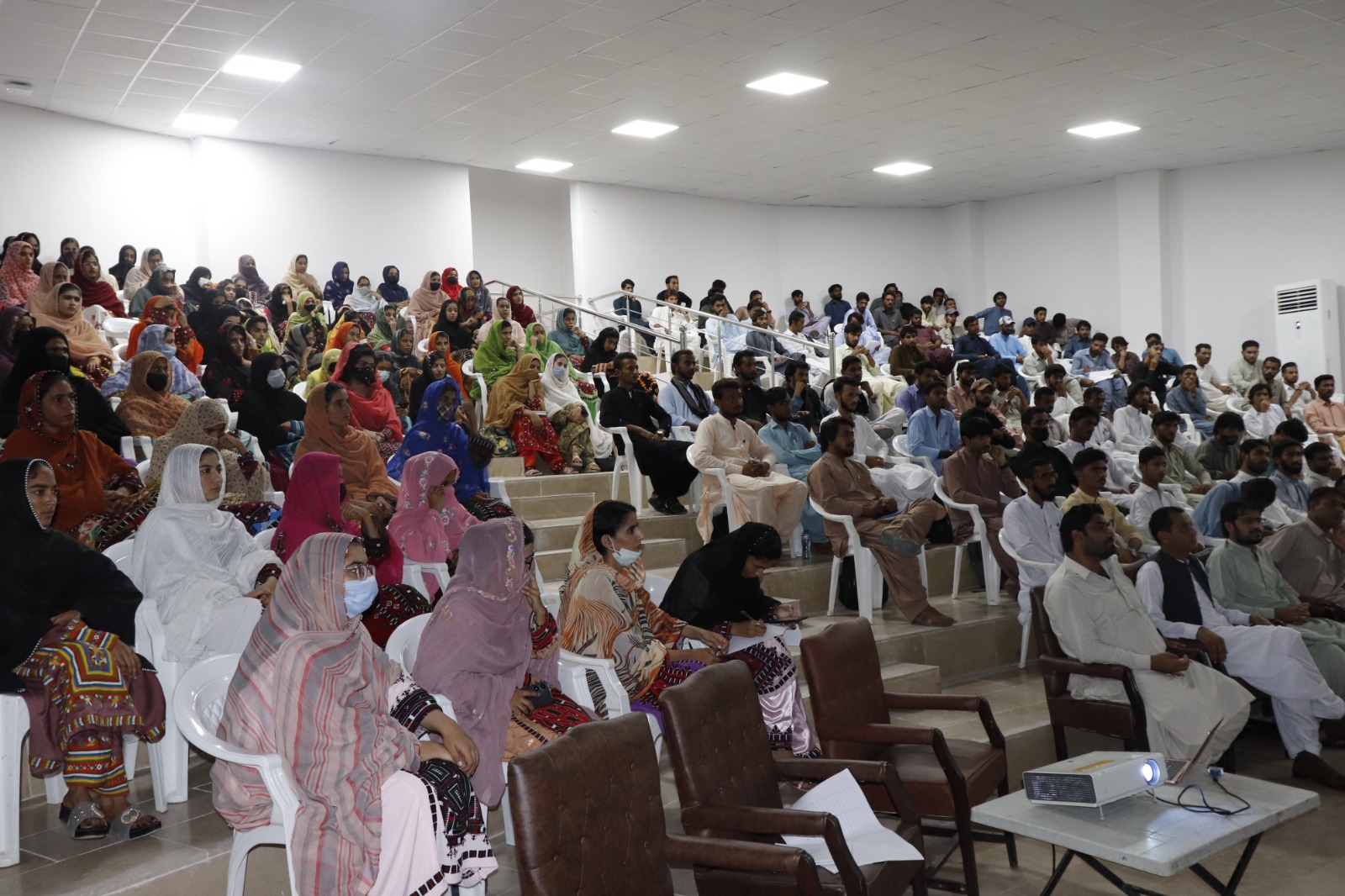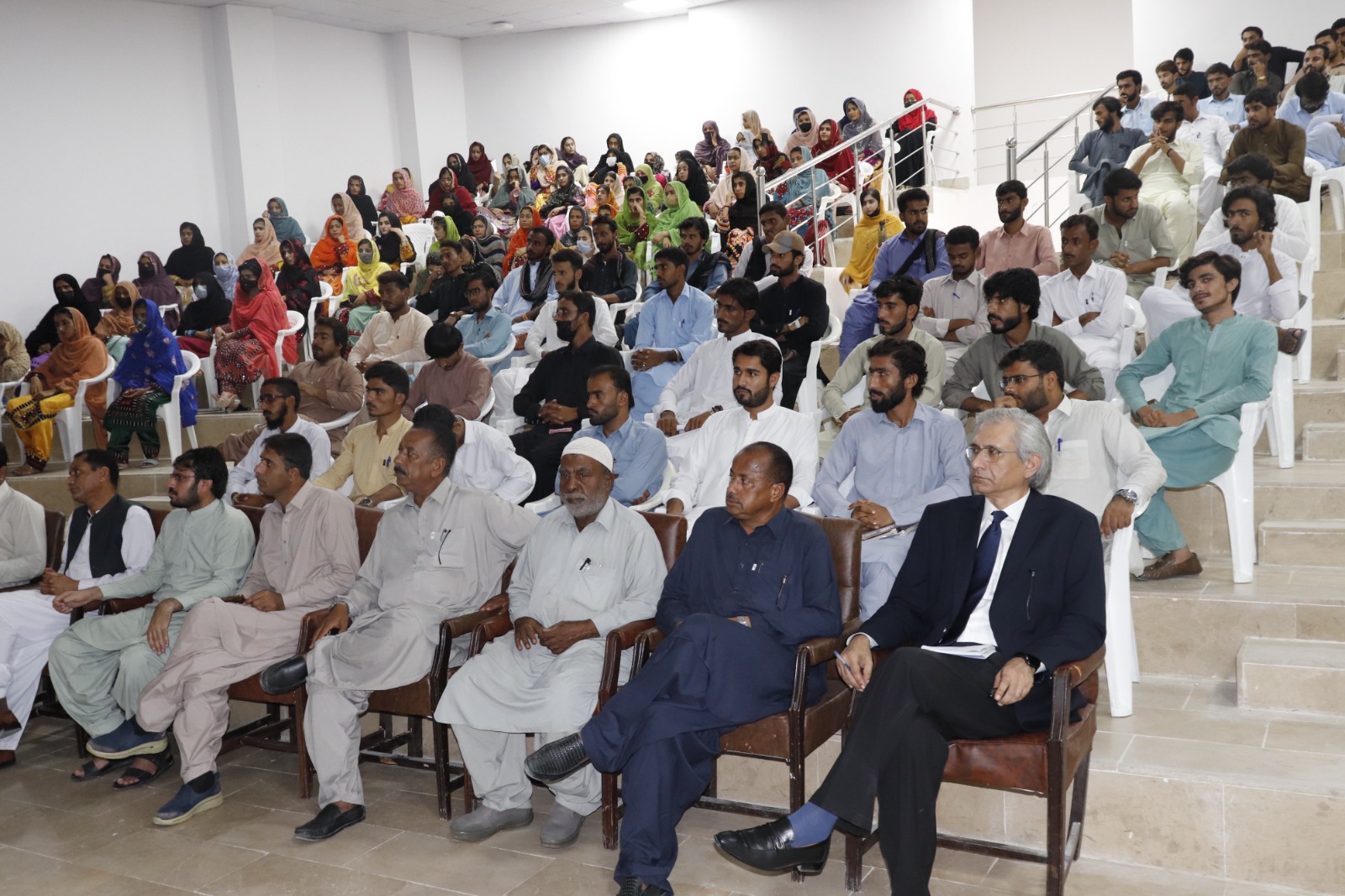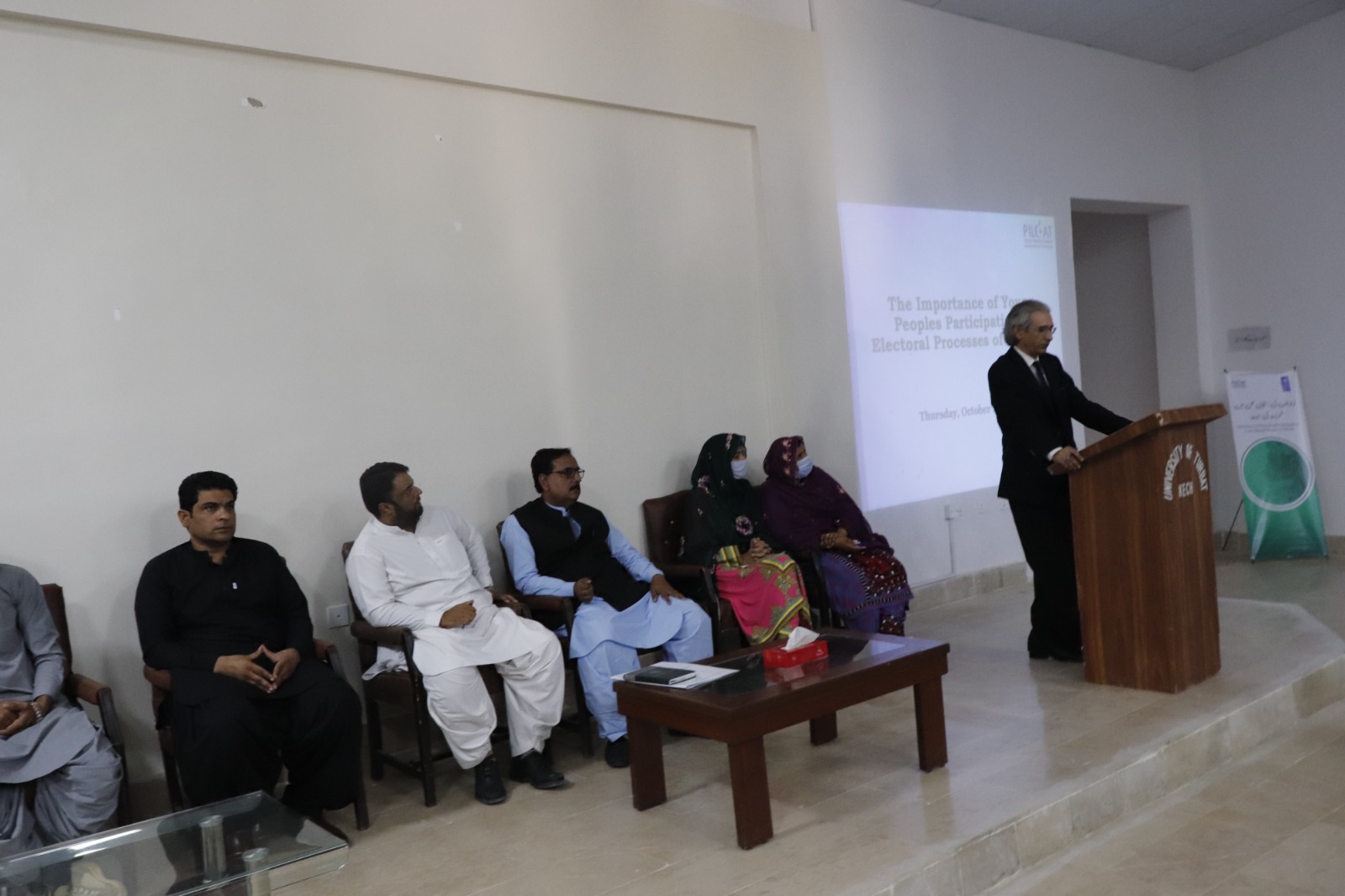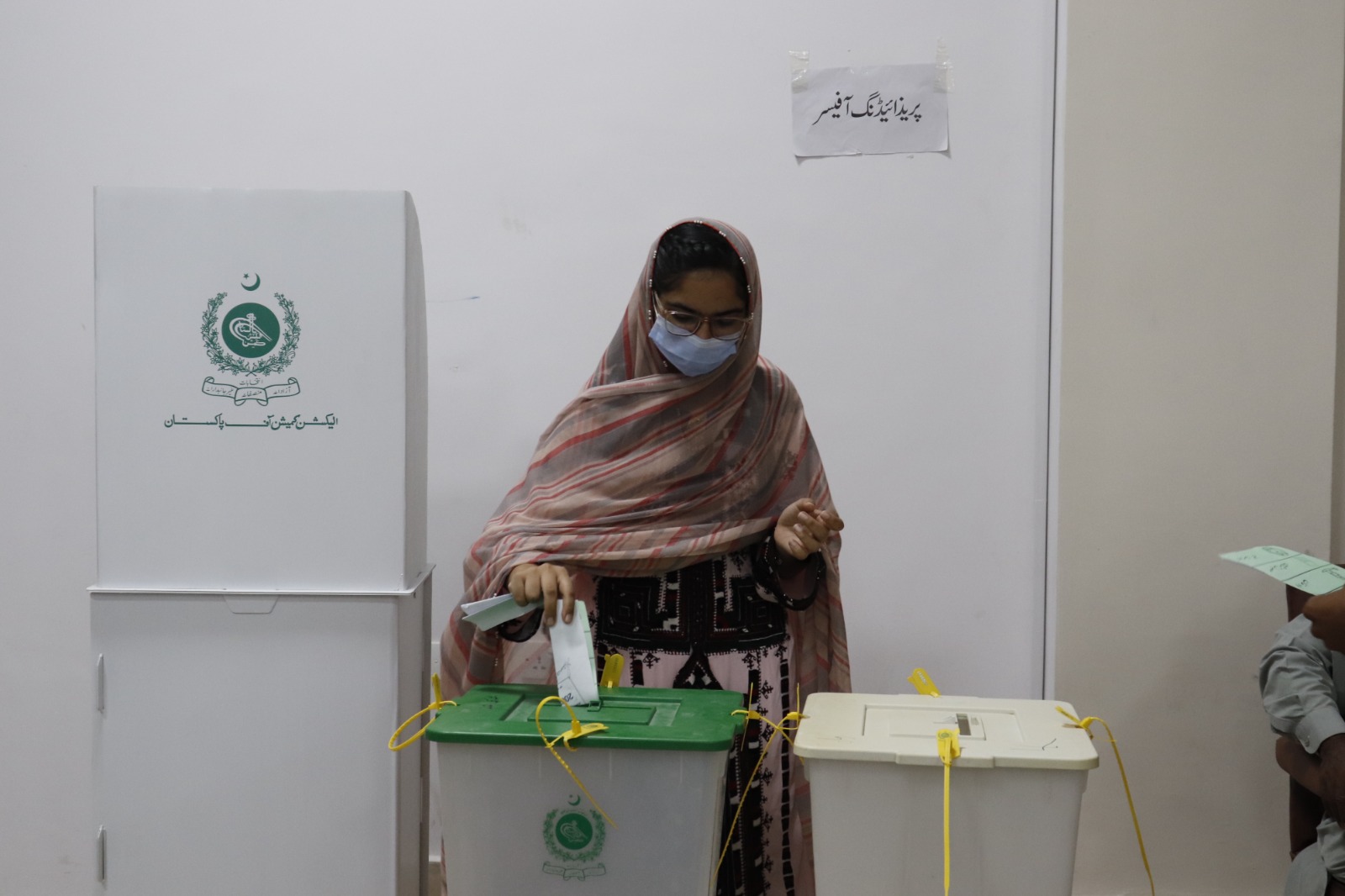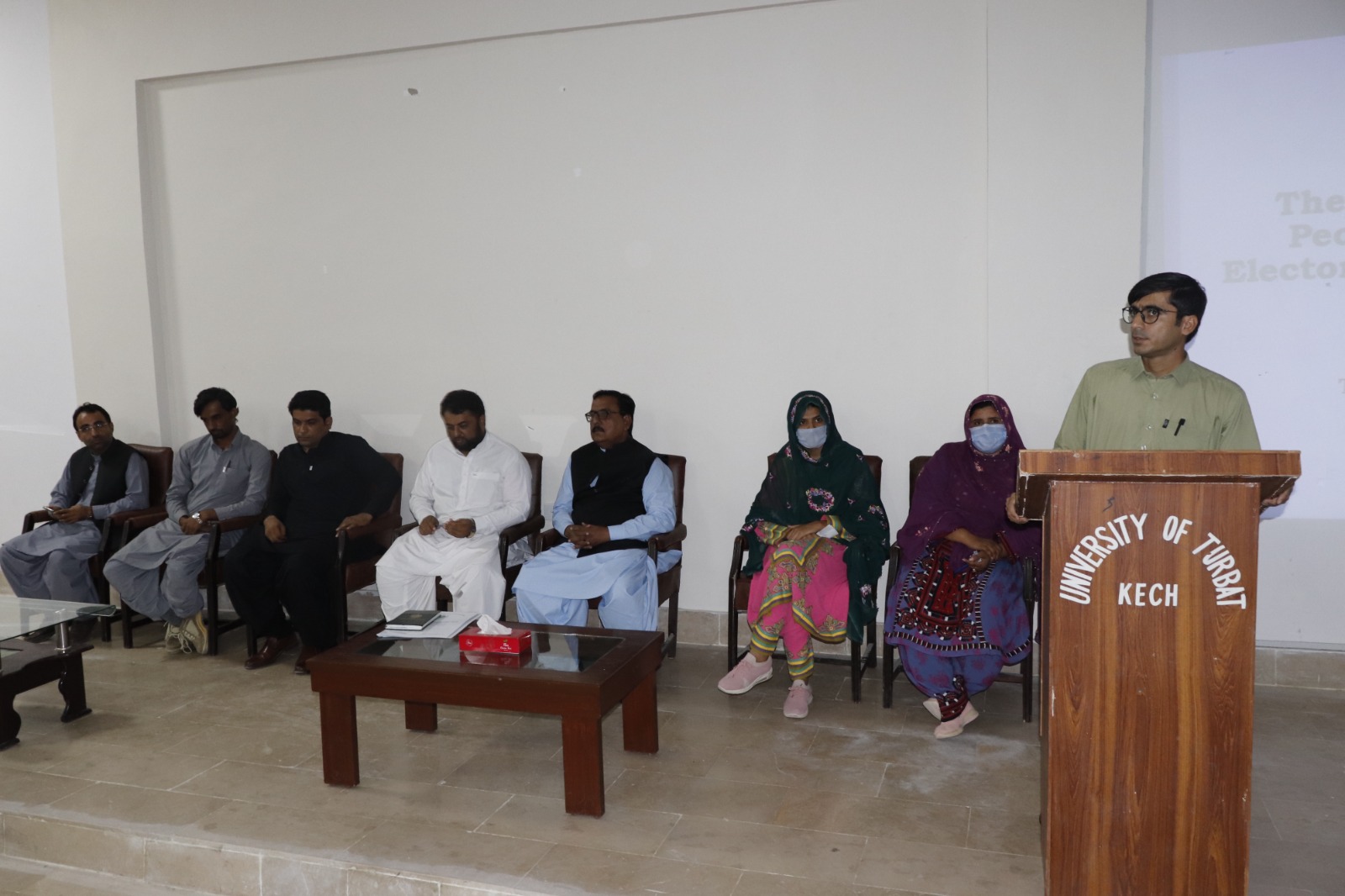
October 19: A consultative session with the students and faculty of the University of the Turbat was held at their Large Lecture Hall. Mr. Sikandar Jamali, Regional Election Commissioner Makran Division, Mr. Muhammad, District Election Commissioner and Mr. Ghous Baksh, Deputy Director represented the Election Commission of Pakistan (ECP) at the consultative session.
Dr. Changez Baloch, Chairman of the Political Science Department at the University of Turbat, inaugurated the session and welcomed the participants and expressed his gratitude to PILDAT for organizing this crucial discussion on the importance of youth participation in Pakistan’s electoral processes. Dr. Baloch stressed how active engagement in the electoral processes can strengthen the democratic processes in Pakistan.
Mr. Faheem Ahmed Khan, Senior Projects Manager PILDAT, introduced the panel members. The panel members included Mr. Sikandar Jamali, Regional Election Commissioner Makran Division, Mr. Muhammad, District Election Commissioner and Mr. Ghous Baksh, Deputy Director ECP. The Youth Representatives included Ms. Naz Gul, Ms. Tanavosh Fazal, and Mr. Akhtar Ali, while the university was represented by Mr. Chakkar, Senior Lecturer of Political Science at the University of Turbat.
During his presentation, Mr. Faheem Ahmed Khan, Senior Projects Manager PILDAT discussed the demographic distribution of registered voters in Pakistan, highlighting that 45% of the total registered voters belong to the age group of 18-35 years. Additionally, he provided a comparative analysis of the voting behaviors shown by the young populations of Pakistan and India. Notably, the youth voter participation in India surpassed the overall voter turnout seen in the most recent Indian elections. The panelists agreed that low youth voter participation was a genuine problem, not a myth. They gave explanations for the low voter participation, one of which was that young voters did not trust the electoral system and hence, did not participate in the electoral processes. Concerns were raised about the lack of confidence among young voters in the voting system. In addition, they emphasized that young individuals had little knowledge of the procedures involved in registering to vote or casting a ballot.
The Youth Representative, Ms. Naz Gul, pointed out that political leadership has largely failed to represent the youth at the highest level. She highlighted a critical lack of information and awareness amongst the youth regarding the electoral process. She passionately argued that if young individuals are not given the opportunity to actively engage in politics it will further decrease their interest in the electoral system and they will not turn out to vote.
Ms. Tanavosh Fazal, a Youth Representative, stated that many young people in Pakistan believe that elections are not free and fair, which is why they are hesitant to vote.
Mr. Akhtar Ali, Youth Representative, expressed his frustration over the existing electoral system and said that the current electoral system does not involve young people in active politics. He pointed out that they are not even allowed to discuss politics on the campus and there is no meaningful activity at the university that can encourage the youth to participate in the electoral process.
Mr. Muhammad, the District Election Commissioner of Turbat, outlined the proactive efforts undertaken by the Election Commission of Pakistan (ECP) to raise awareness among the youth regarding their vital role in the electoral process. He highlighted the ECP’s initiatives aimed at encouraging the youth.
Mr. Sikandar Jamali, the Regional Election Commissioner of Makran, emphasized the crucial importance of youth participation in elections. He firmly stated that the system can only be changed for the better when young people actively engage in it.
Mr. Chakar, Senior Lecturer Political Science Department, shared insights into the university’s initiatives aimed at engaging the youth.
The session was attended by a total of 151 students out of which 64 (48%) were young women and 79 (52%) were young men
Following the panel discussion, students enthusiastically participated in a mock polling exercise and cast their votes. The students were eager to experience the democratic process firsthand and engage in meaningful discussions about the topics presented during the panel discussion.
